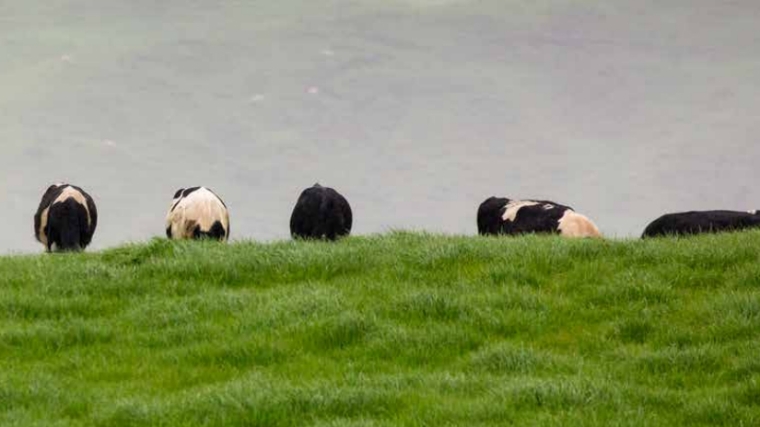
By Angus Kebbell
This week I am talking with Grant Bunting from ANZCO to discuss the New Zealand beef sustainability Proof of Concept Project.
This project brought together representatives from across the value chain with an interest in demonstrating how principles of sustainable beef production could be applied on-farm and through processing to provide increased transparency and evidence of continuous improvement.
Using the McDonald’s supply chain as a test case, the project brought together six farms, four processing facilities and an added value facility. These areas worked collaboratively with the assistance of external expertise to understand what a sustainable standard looked like in their particular enterprise; how with an approach of continuous improvement they could achieve these standards; and how these standards could be independently verified by a recognised third-party.
Every stake holder agrees that the environment is important and there is a genuine desire and willingness by farmers to continue making progress in this area. What is not progress is policy appearing out of the blue from urban know-alls in the Beehive in Wellington.
We know that there is an increased appetite for sustainably produced food and I think you would struggle to find any major food producing country in the world that comes close to New Zealand.
The progress that we are discussing and the progress our farmers are making does ultimately increase the costs of production, so the question is – who should be absorbing these costs?
In the end is New Zealand at some stage will need to ask more money for our "sustainable" products, just because they cost more to produce. So as a food producing export driven economy and nation, we need to do better in telling our story and marketing, so our markets know we are the world leaders in sustainable, grass fed, low intensity food producers, with high and improving environmental outcomes. Plenty more to come in this area.
Listen to the podcast for the full interview with Felicity Clark.
Angus Kebbell is the Producer at Tailwind Media. You can contact him here.
9 Comments
For years farmers have been "running faster to stand still " . This will just be more of the same. Especially with beef, where a large proportion of every carcass, even prime steers, ends up as mince. The producers are the weakest link in the supply chain, and so have the least pricing power.
Yes, grass fed already is sustainable. This guy explains it. https://www.youtube.com/watch?v=jwEToq05L2k&t=3s
False economies, the problem isn't fertilizers, it is large animals treading on our steep hills and the resulting soil loss.We have only been farming NZ for a few decades and already the degradation is evident. I am a carnivore and could not survive without meat and cheese but NZ only has limited terrain suitable for cattle, sheep are OK. and they taste great.
why do we need to farm cows?
Im happy to read up on any links people post re sustainable versions of dairy farming, though has anyone seriously researched the option of just doing away with diary altogether?
As humans we don't NEED to eat beef or drink milk. Certainly from a health perspective plant-based options are better.
So is putting our finite energy resources into growing food for us to eat, food that produces O2, better than putting our finite energy into growing food to eat (cows), that also fart methane and eat the O2 producing plants that we NEED.
I suppose we can keep a few cows for cheese. I like cheese. Yes we'll keep cheese for artisan purposes.
But aside from cheese... are cows not just getting in our way?
I need to eat beef. Especially scotch fillet with mushrooms on top. Cant do without butter on my toast between the marmalade. If I didnt have a cappa every morning the rest of the day would be constipated misery. And brie with chippies and a coke with ice lots of ice is my wind down after a tough week.
Wrong, far more people have deadly allergies to plant based proteins and even more have severe autoimmune and gut system issues (including bleeding and needing portions of bowel removed) when consuming plant based proteins. That you are ignorant of the many hundreds of conditions that make meat a necessity and plant based proteins deadly is not a reason to plow ignorant ideology. Having one person say it is fine for them therefore impose it on the rest of the population is like saying all wheelchair users should walk to hospital instead. You cannot propose ideas that would literally KILL people and expect them to be fine with that. Billions NEED meat, in particular red meat to prevent malnutrition and to live day to day. Imagining a fairy tale and imposing your diet on others against their will and their doctors advice is not going to change medical science.





We welcome your comments below. If you are not already registered, please register to comment.
Remember we welcome robust, respectful and insightful debate. We don't welcome abusive or defamatory comments and will de-register those repeatedly making such comments. Our current comment policy is here.